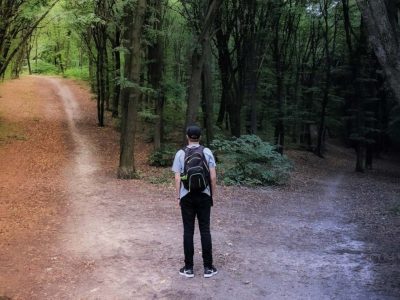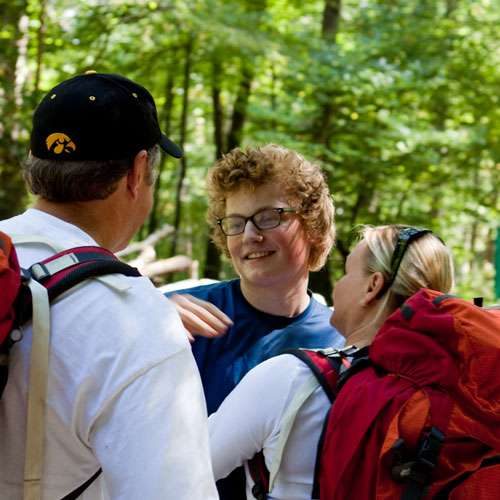One of the biggest unspoken threats of the climate crisis we are facing is the effect of the environment on children’s mental health. Teens are spending more time inside because of the draw of technology, but it is possible that outdoor environments are less appealing in urban neighborhoods with fewer green spaces. While we typically think that air pollution is only a problem in major cities or other countries, the World Health Organization suggests that 9 out of 10 people breathe polluted air, which can lead to a variety of health problems. Wilderness therapy can have a restorative effect for children whose mental health has been affected by air pollution.
Association with Mental Health
A study published in Environmental Health Perspectives shows evidence that short-term exposure to air pollution worsened children’s mental health. One to two days after experiencing certain levels of air pollution, kids were more likely to go to the emergency department for a psychiatric-related reason. The study showed that kids in poorer neighborhoods suffered more intense effects from air pollution than those in more affluent neighborhoods.
This study analyzed pediatric psychiatric emergency department visits at Cincinnati Children’s Hospital Medical Center over five years. The study included over 13,000 emergency department psychiatric visits, representing over 6,000 unique children. The authors researched air pollution exposure on the days leading up to each patient’s emergency department visit to draw connections between spikes in air pollution exposure and emergency room visits for mental health issues.
Another study published in Environmental Research showed exposure to traffic pollution during early life and across childhood was significantly associated with increased self-reported depression and anxiety symptoms in children.
Association with Cognitive Functioning
Exposure to severe air pollution has been found to cause cognitive deficits and inflammation in the brain structure of otherwise healthy children. In a study comparing the effects of air pollution on teens from urban areas and teens from rural areas, controlling for other risk factors, researchers found that 56% of teens from urban environments showed abnormalities in the decision-making area of their brain, the prefrontal cortex. Environmental contaminants can be especially harmful to the developing brains of young people.
An unhealthy environment can affect teens’:
- Intelligence
- Cognitive Control
- Attention
- Academic Achievement
Association with Sedentary Behavior
When teens have less access to clean public spaces to socialize, they are more likely to stay at home and isolate from others, which can lead to increased depression and anxiety. Loneliness and sedentary behavior are strongly correlated. If loneliness is associated with sedentary behavior, the opposite would suggest that social connection is associated with physical activity, whether this means engaging in group physical activities or feeling more confident in relationships as a result of solo physical activity.
Benefits of Wilderness Therapy
- Teens are removed from the stressors of an urban environment.
- Spending time in nature is associated with a variety of physical health benefits.
- Getting out of one’s head and into their body through physical recreation activities strengthens teens’ cognitive functioning and self-awareness.
- Wilderness environments help fight feelings of depression and anxiety.
Trails Carolina Can Help
Trails Carolina is a wilderness therapy program that helps teens ages 10-17 who are struggling with behavioral and emotional issues. This program uses adventure-based therapy to help students gain a new sense of self-awareness, confidence, and independence. The skills they learn throughout the wilderness program offer long-term benefits towards their ability to successfully self-navigate in the real world. By removing teens from their fast-paced environment into a safe, nurturing, and peaceful environment, they are able to focus on improving and reflecting upon their behavior. Trails Carolina gives students the tools they need to lead happy and healthy lives. We can help your family today!
Contact us at 800-975-7303 to learn more about wilderness therapy.
Get started today
Contact us today to learn how Trails Carolina can help your family
Trails saved my daughter’s life. Amanda is an amazing human and a brilliant therapist. I am so grateful to her, Science Steve, and the other wonderful people who could reach my daughter at a time when I could not.
Margot Lowman August 2022
Great life changing experience for our son. After becoming addicted to gaming during covid he was very depressed. At Trails he experienced the wilderness, Science Steve, learning survival skills and top notch therapy and support etc… I highly recommend! This gave our son and our family a renewed family bond full of love and excitement about his bright future.
Winnifred Wilson July 2022
Outstanding clinical work and superb staff! There’s a great culture at this company and it shows with how they engage with families/clients.
Kristin Brace June 2022
Discover If Trails Is The Right Program For Your Child
Take our short online assessment and help us better understand how we can help your family.




